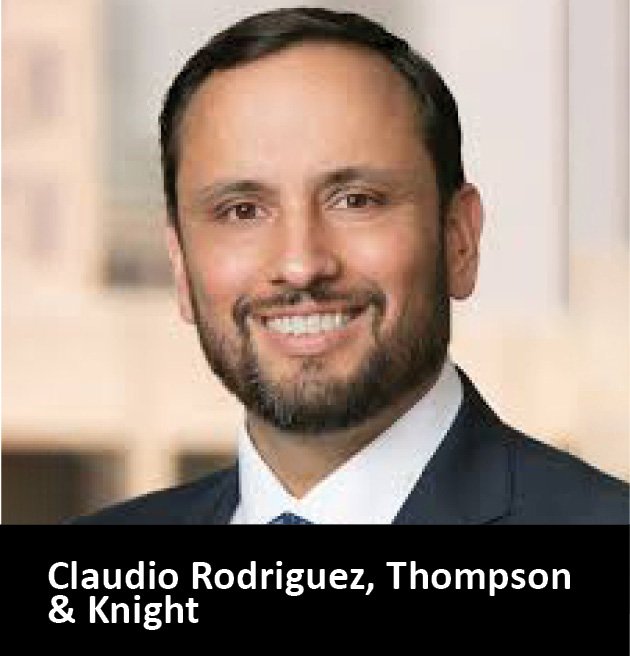Mexico power auctions set to drive demand for engineering, construction and financing advice
Lawyers’ role changing as focus shifts from regulatory and administrative work to challenging awards and modifying contracts
Mexico’s energy auctions are expected to continue under the leadership of President Andrés Manuel López Obrador, with the result that the nation’s law firms are anticipating growing demand for advice on engineering, procurement, construction and financing matters.
The nation’s electric power auctions, which have so far harnessed $6 billion in investment in wind and solar projects, according to government figures, are still posing major challenges for developers. Lawyers say some of the common obstacles developers face include procuring financing, permit issues, as well as local opposition to projects.
The country’s fourth power auction, which was re-scheduled to 18 December having been postponed from November to allow bidders more preparation time, will be the first held under the government of López Obrador. Yet uncertainty prevails as the new leader has revealed little about any plans for more power auctions, or plans for renewable energy in general.
 “I don’t think it is López Obrador’s priority to suspend the auctions, but this is not the same as providing continuity,” says Claudio Rodríguez, a partner at Thompson & Knight in Mexico City. “I think the new government understands that renewables are fundamental to the energy matrix, and while electricity does not have the same historical significance as hydrocarbons in Mexico, the auctions directly benefit the consumer, which is in line with López Obrador’s policy of benefiting the least-favoured.” Rodríguez adds: “From the entrepreneurial point of view, the auctions signify a billion-dollar business and a large number of new jobs, and this should not be neglected by the government.”
“I don’t think it is López Obrador’s priority to suspend the auctions, but this is not the same as providing continuity,” says Claudio Rodríguez, a partner at Thompson & Knight in Mexico City. “I think the new government understands that renewables are fundamental to the energy matrix, and while electricity does not have the same historical significance as hydrocarbons in Mexico, the auctions directly benefit the consumer, which is in line with López Obrador’s policy of benefiting the least-favoured.” Rodríguez adds: “From the entrepreneurial point of view, the auctions signify a billion-dollar business and a large number of new jobs, and this should not be neglected by the government.”
Juan C. Serra, partner at Basham, Ringe y Correa, says the Mexican government is unlikely to suspend the programme given its stated intention to increase electricity generation, though he adds the plan is “focused more on boosting hydroelectric generation”.
However, Rodríguez acknowledges that would-be participants in the power sector will face challenges, namely procuring financing, negotiating the environmental and social permitting process (at federal, municipal and state level), procuring land and access rights, and possibly encountering opposition from local communities. For example, communities in the southern state of Oaxaca – which is the country’s wind hub with 27 farms currently operating and more planned – have mounted opposition ever since the first project broke ground in 2006, and protests and blockades have subsequently led to some projects being delayed.
That said, there is a feeling that sentiment is changing. “We advise clients on the social impact of projects, according to Mexico’s electricity industry law, and we have seen an increased willingness on both sides, from developers and communities, to be more transparent, just and balanced, adopting a win-win outlook,” Rodríguez says. “This has meant that projects awarded at auction [since 2016] have not encountered such opposition, and we hope that the new government’s social vision does not rupture the balance that has been achieved.”
Communities opposing projects
Meanwhile, land acquisition is also a challenge for clients, says Serra. This is a particularly complex issue in Mexico given that much of the rural land is communally owned. “We have so far not seen cases of local or foreign companies encountering permit-related obstacles for the development of renewable energy projects,” he explains. “The main problem has to do with social opposition to projects from local communities.” Serra says states such as Oaxaca, Chiapas and Tabasco have demonstrated the greatest resistance to such projects, given that they have “more conservative communities that are opposed to the presence of large companies, either local or multinational, that can affect the natural resources of the community”. He continues: “While it is difficult to say if social resistance to projects will increase, as that will depend on their location, mitigating such opposition will depend on good negotiations and communication between developers and communities in order to obtain a so-called ‘social licence’ to avoid a project being halted by conflict.”
 Rodríguez says that, as the auctions have progressed, some law firms have seen their role change. “In the first auctions, our role was more regulatory and administrative, ensuring that our clients understood the process to achieve qualification, but as our clients began to understand the process, our role has shifted to challenging decisions and, in the case of contracts already awarded, the modification of those, and we have also successfully counselled clients on engineering, procurement, construction and financing contracts.” Rodríguez says the biggest challenge for clients is procuring financing, given the long-term contracts involved, the fluctuating price of electricity on the spot market and the low prices offered at auction, which dropped to a record low of $20 per megawatt-hour in 2017. He adds: “Developers have to be very clear about entering into commitments they may not be able to meet having not properly analysed the technical, financial and legal aspects in the rush to satisfy the demands of an electricity generation contract.” In the third long-term power auction, which was held in November 2017, solar achieved a world record average price of US$20.57 per megawatt-hour. Companies assigned projects in the auction included Enel Group and Canadian Solar Energy Mexico.
Rodríguez says that, as the auctions have progressed, some law firms have seen their role change. “In the first auctions, our role was more regulatory and administrative, ensuring that our clients understood the process to achieve qualification, but as our clients began to understand the process, our role has shifted to challenging decisions and, in the case of contracts already awarded, the modification of those, and we have also successfully counselled clients on engineering, procurement, construction and financing contracts.” Rodríguez says the biggest challenge for clients is procuring financing, given the long-term contracts involved, the fluctuating price of electricity on the spot market and the low prices offered at auction, which dropped to a record low of $20 per megawatt-hour in 2017. He adds: “Developers have to be very clear about entering into commitments they may not be able to meet having not properly analysed the technical, financial and legal aspects in the rush to satisfy the demands of an electricity generation contract.” In the third long-term power auction, which was held in November 2017, solar achieved a world record average price of US$20.57 per megawatt-hour. Companies assigned projects in the auction included Enel Group and Canadian Solar Energy Mexico.















